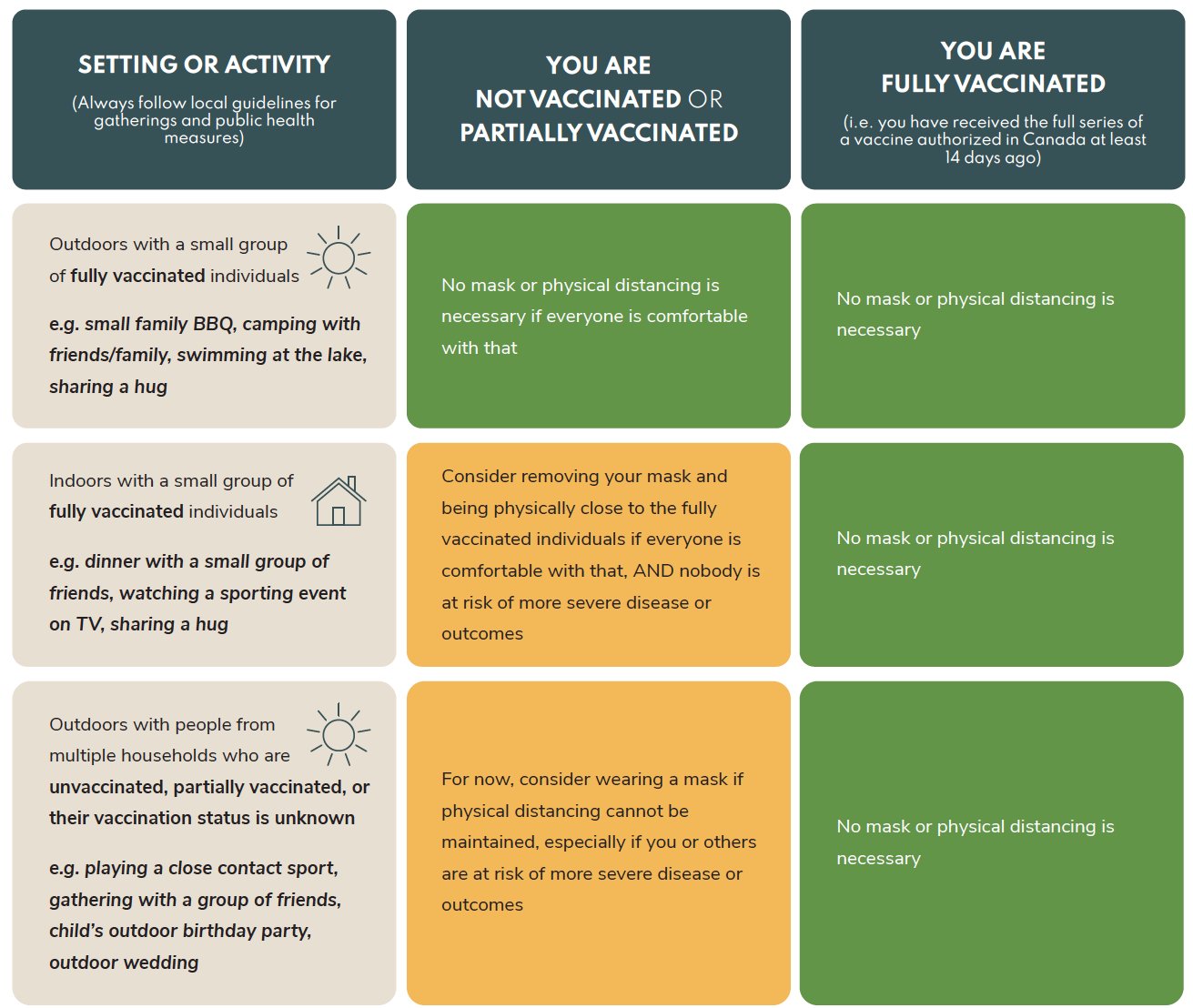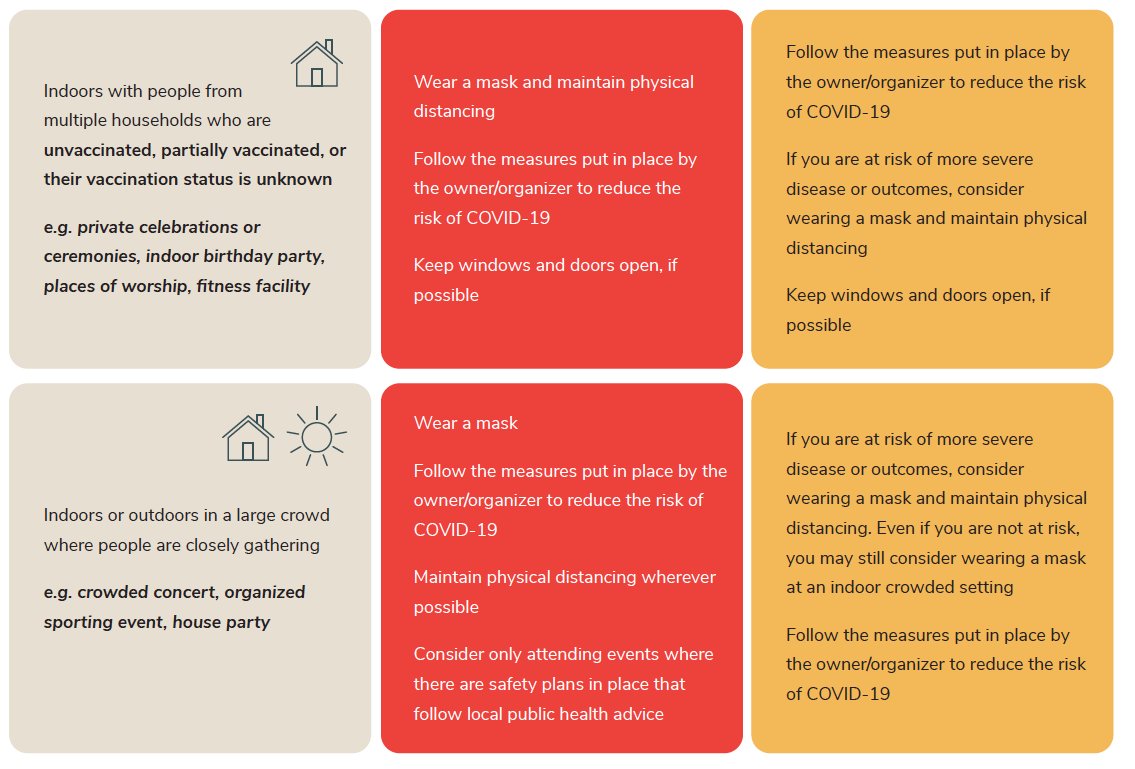Canada releases chart of what vaccinated residents can and cant do

The Public Health Agency of Canada says people who are fully vaccinated against COVID-19 can have dinner together inside someone's house without having to keep their distance or wear a mask.
It released the information after facing days of questions about what those who are double-dosed can do as the country's vaccine campaign ramps up.
Prime Minister Justin Trudeau says 26 per cent of Canadians eligible for a vaccine against COVID-19 are fully vaccinated, with more than 76 per cent of people having received a single shot.
Canada's chief public health officer Dr. Theresa Tam says her provincial colleagues want residents to follow the advice being provided by local medical officials, as it's more responsive to the situation in their communities.
The agency released a chart following the briefing that laid out what people can do if they are fully or partially vaccinated.
It says someone who is meeting people who are double-dosed while gathering in a small group outside doesn't need to physical distance or wear a mask, regardless of vaccination status.
The agency says when meeting inside a house with a small group of people who are fully vaccinated, those who have had two shots don't need to wear a mask or keep their distance.
It says people who are not can consider doing the same, if everyone feels OK and there's no one at risk of more severe illness.
In outdoor settings where people with unknown vaccination statuses from different households are mixing, it says someone who is fully vaccinated doesn't need to mask up, but people who aren't should think about keeping it on.
When it comes to going into larger crowds at say a concert, the agency says fully vaccinated people might still want to think about keeping their mask on in a crowded indoor setting, even if they don't have any underlying conditions.
It says they should do the same if they have any added health risks when meeting in a smaller indoor setting where they don't know whether everyone has been vaccinated.
Also released Friday was federal COVID-19 modelling, warning the Delta variant could make a possible fourth wave of the pandemic worse that initially thought.
Data currently shows the number of infections and hospitalizations continue to fall across the country, as more Canadians get vaccinated against COVID-19.
As that happens, provinces are moving ahead with plans to lift public health restrictions put in place to limit socializing and keep the spread down.
Saskatchewan and Alberta both plan in July to remove nearly all of their measures, including provincial rules around mask wearing.
Federal health officials say the Delta variant is the “latest hurdle” to the country's fight in the pandemic, and could cause hospital capacity to be exceeded if it takes hold throughout the fall and winter.
The government's modelling was based on assumptions the strain is more transmissible than other variants of concern, and leads to more severe illness based on its spread in the United Kingdom.
Tam says the Delta variant is the most contagious strain seen to date and its presence has increased in Canada.
Federal data shows most of the cases are found in people who haven't been vaccinated against COVID-19 or only have one shot.


